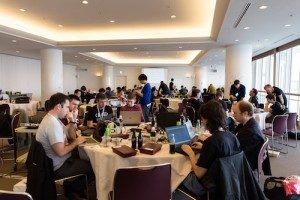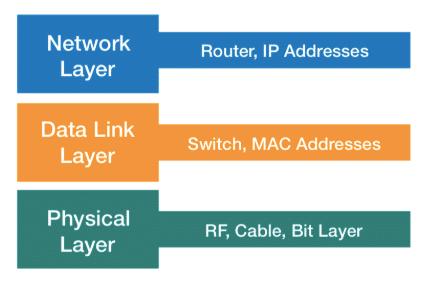
What’s a meetup?
Unless you’ve lived in a cave for the past ten years (and if you have, I totally respect that), you are most likely familiar with meetups. Meetups are planned events where members regularly get together to network and talk about a particular topic that they are interested in. It could be a sport, a language, a discipline, etc. Currently, there are more than 270,000 meetups in 182 countries, for a total number of 30+ million of members. That’s pretty significant.
Meetups for Network Engineers
If you’re interested in meeting with other network engineers, then you should know that there are several meetup groups around the country that are focused on network engineering. All you have to do is go on meetup.com, search for a topic of interest in your area, and then follow the group guidelines on how to become a member. Some groups are open, while others may require permission or vetting from the organizer. If you don’t know where to start, here is a list of the most prominent meetups that may appeal to network engineers:
The Chicago Cisco Systems Meetup Group
Location: Chicago, IL
If you live or work in Chicago, this is definitely a meetup group that you want to register for. The group is open to all network engineers, from entry-level to experienced architects. This group has a nice variety of topics related to routing and switching, network security, wireless and unified communication. Meetings don’t seem to have a regular occurrence and are scheduled on more of an ad hoc basis. Most recent meetings covered topics like SD-WAN, OpenStack, and Cisco ACI.
SF Network Automation
Location: San Francisco, CA
Are you a DevOps involved with network configurations? Or are you a network engineer using DevOps tools to rule on your network? Then SF Network Automation may be a fit. This meetup has a clear mission statement that “network automation should be done fundamentally better – that DevOps practices should be applied to networking.” Past meetings covered technologies like Ansible, OpenStack, Puppet and Chef.
IT Infrastructure Architecture Technology Seminars
Location: Chicago, IL
The goal of this meetup group is to educate its members on the best practices that should be applied to network design, from collection and analysis of the requirements to the implementation, validation, and optimization of design choices. If you are a network architect or would like to make the step in the future, you should definitely consider attending seminars promoted by this group.
Network Admin and Support Professional
Location: Vancouver, BC (Canada)
This Canadian meetup is targeting network administrators and operators interested in learning new technologies and exchanging ideas and best practices on topics related to network administration, network security, and technical support. It looks like a great way to connect with like-minded network administrators in the Vancouver area.
Out of the Box Network Developers
Location: Santa Clara, CA
If you’re a network engineer interested in the future of networks, you’ll find this group to be interesting. It’s primarily organized by network developers that are working on technologies like Software-Define Networks (SDN) and Network Function Virtualization (NFV). Out of the box network developers is sponsored by Intel Networking, who has released an SDN/NF development platform that is getting considerable traction in the industry.
SDN And Switching
Location: Santa Clara, CA
This is another group based in Santa Clara, CA. Not surprisingly, Silicon Valley is where most of the SDN/NFD innovation is happening. As the name states, this group is solely focused on Software Defined Networks and switching. You might be especially interested in this group if you are a network engineer or developer working on data center and cloud infrastructures.
I’m sure this list isn’t complete and that there are many more meetups that are popular between network engineers, architects, and administrators. If you have a meetup group that you particularly like and would like to share with us, please mention it in the comments section.





